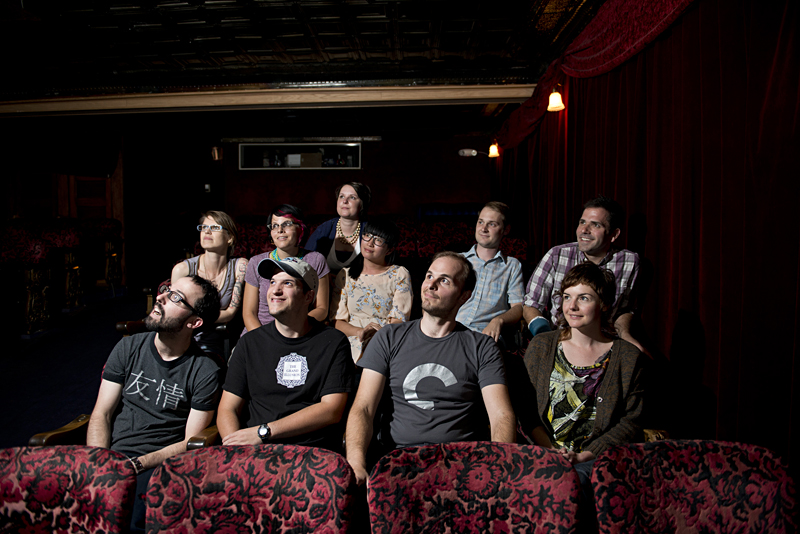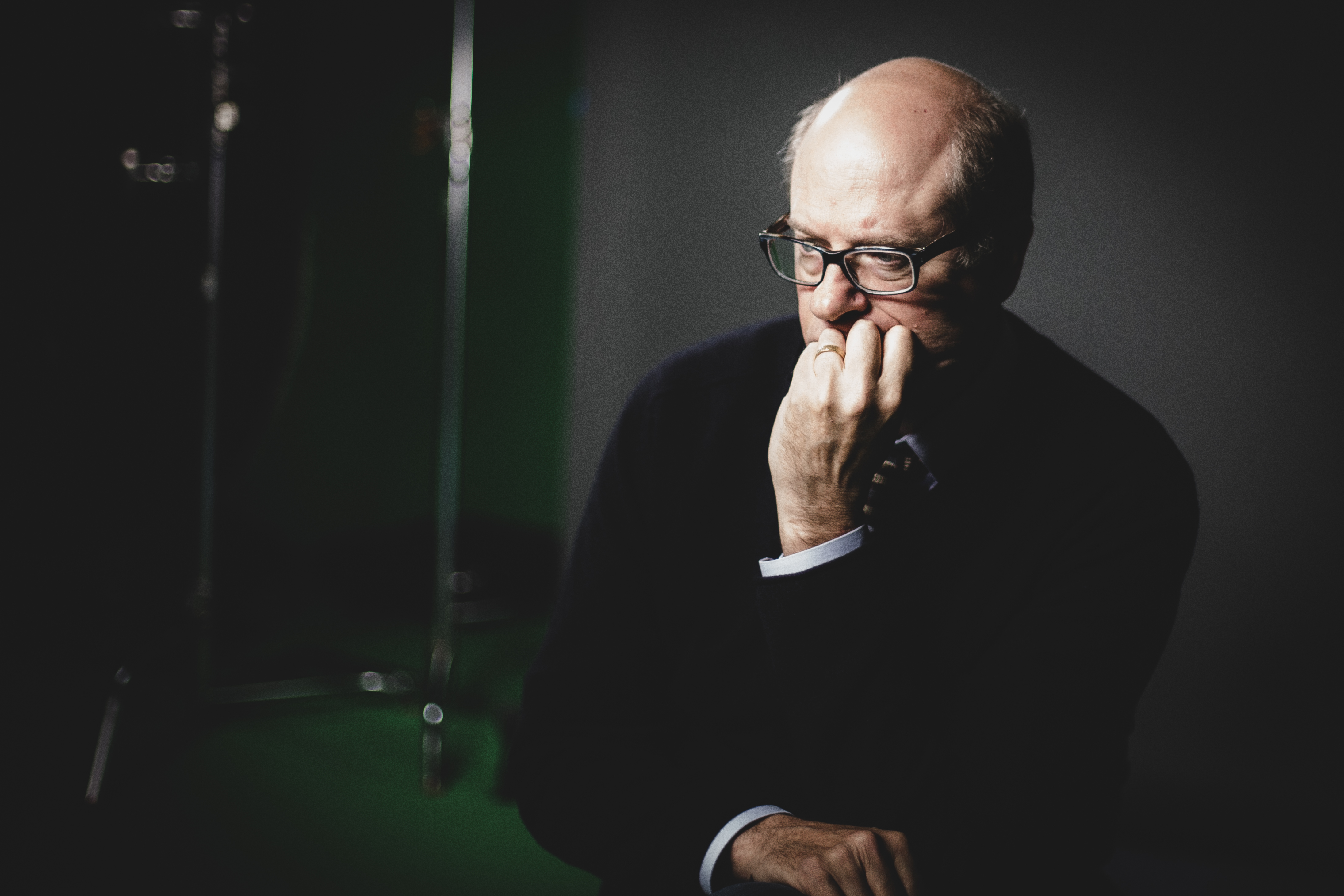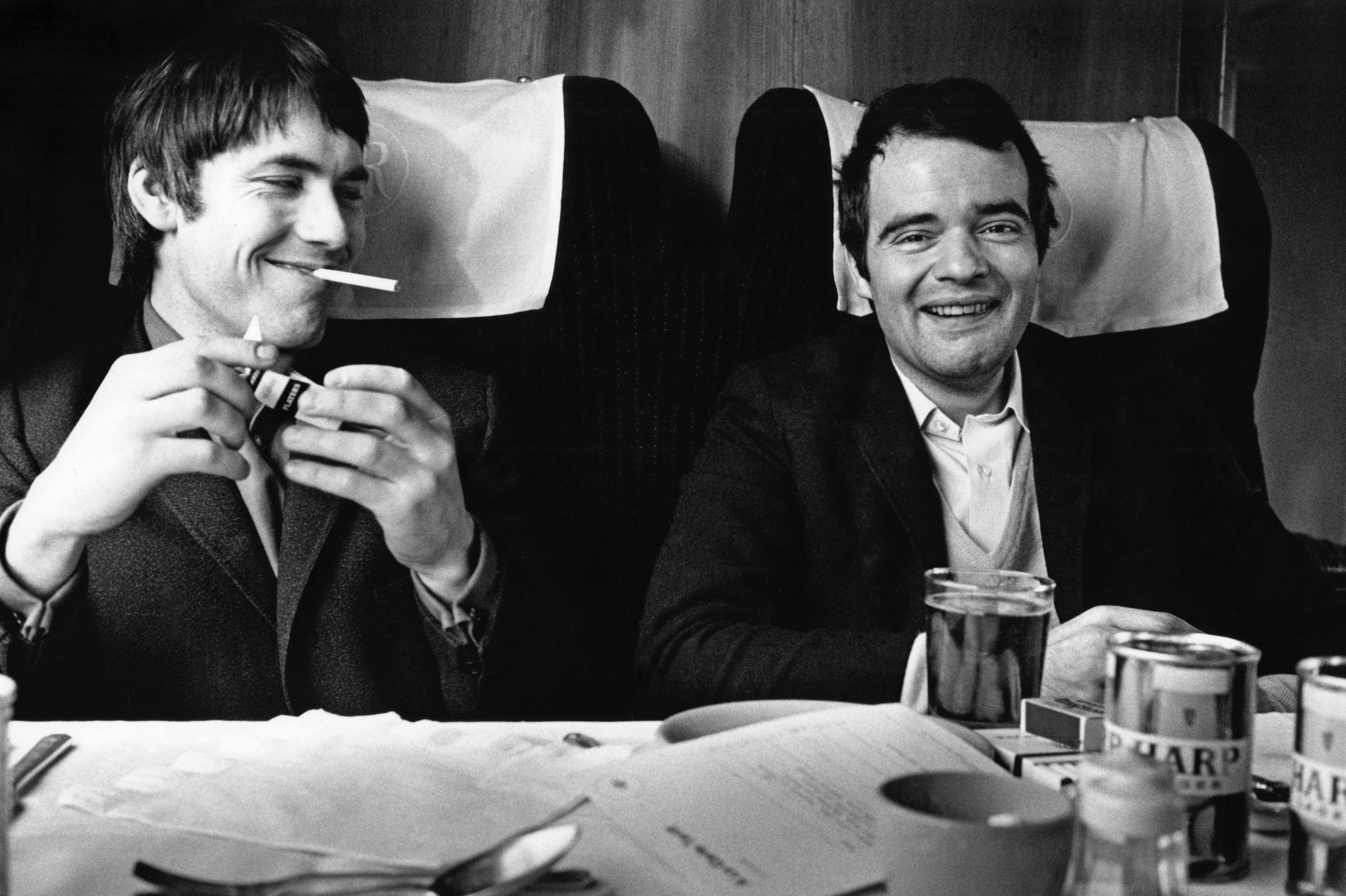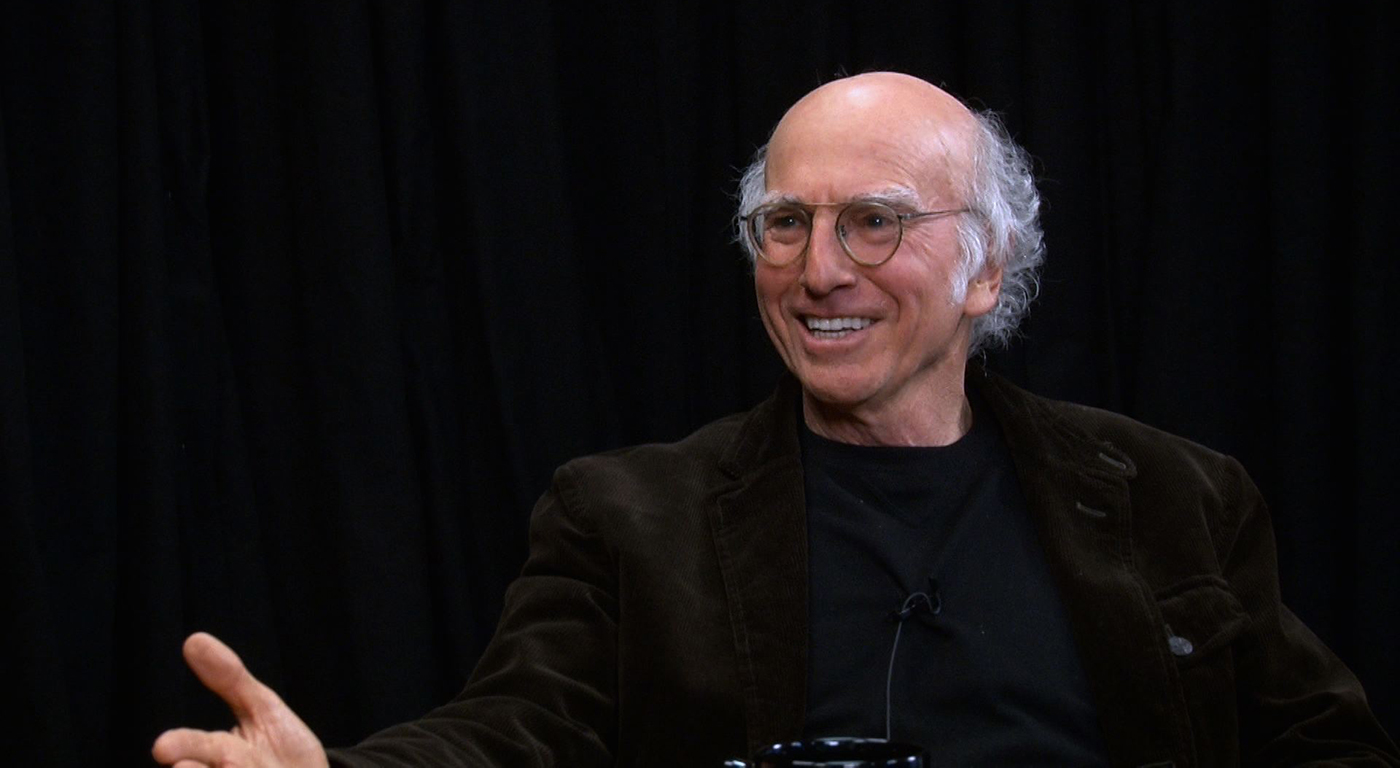When Brian Alter opens The Grand Illusion Cinema, the little U District theater on the corner of 50th and University Way, for its Saturday screenings, the first thing to do is flip on the popcorn machine. As the kettle warms, he turns on the house lights, unlocks the projection booth, and pulls out the change drawer. Then it’s time to drop in the canola oil and start popping the popcorn, which fills the lobby with the unmistakable perfume that defines movie theaters large and small.
As I watch, he sells tickets and chats with the larger-than-expected audience—many of them regulars—on a sunny late-summer afternoon. Then he introduces the matinee screening of Side by Side, makes a pitch for an upcoming fundraiser, runs the trailers, starts the film, and heads back into the lobby to man the concessions counter. For this Labor Day weekend matinee, Alter was a staff of one. (His day job is in advertising.)
That’s not so unusual for a nonprofit organization. What is unusual is that there is no paid staff—not even Alter, currently the general director, manager, and lead programmer. Like everyone who pitches in to keep the theater running, from bookkeeper to projectionists to the programming team, he does so for free. While that makes it a challenge to sustain a seven-day-a-week theater, it’s also one of the reasons it still survives in a turbulent time for cinemas and nonprofit arts organizations alike.
Named after the 1937 antiwar classic by Jean Renoir, the Grand Illusion has been around since 1970, when it was converted from a dentist’s office into the Movie House by cinema impresario Randy Finley. Then and now, it’s a strange space for a cinema: The low ceiling gives it a cavelike quality, and the rumble of traffic can often be heard in a show’s quiet moments. But it has character and a 42-year-old patina.
Finley went on to found the Seven Gables chain (later absorbed into the national Landmark chain), and the Movie House became the Grand Illusion. Under subsequent owners, it’s remained an independent theater and the smallest continuing commercial cinema in town, now with a cozy 70 seats. And it’s endured in a neighborhood that’s seen the closing of the Neptune as a film venue, the transformation of the Metro into Sundance Cinemas, and the Varsity hanging on by a thread.
The nonprofit Northwest Film Forum took over the GI from 1997 to 2004, when it consolidated operations on Capitol Hill, putting the GI back on the market. Spenser Hoyt and Guerren Marter, who’d both been projectionist/managers there, then joined two partners to form a new 501c(3) nonprofit, raise money (much of it borrowed from Marter’s father), and purchase the business—lease, projectors, seats, and all. After some renovations, the theater reopened on April Fool’s Day 2004 with a run of Rubin and Ed, a Seattle cult favorite and GI staple.
Eight years later, Marter has left and Hoyt has scaled back his involvement, but the organization they built remains steady (with 24 volunteers and an eight-member board of directors). Last year, it paid off the last of its loans. The GI is now free and clear of all debts.
There are inevitable real-estate pressures, but Alter says he’s not too worried about being displaced by development. Gentrification is coming only fitfully to the U District, where empty storefronts are still a common sight, and the GI sits on a small, odd-shaped corner lot, not the most conducive to development. Tenants have come and gone in the cafe next door (not commercially connected to the theater), but the landlords have been supportive of the GI, says Alter.
The programming mix of offbeat indies, repertory titles, and imports generally plays to a small but dedicated audience—senior citizens, college kids, and film buffs. This year’s highlights have included the Samuel L. Jackson crime thriller The Samaritan; the restored cut of Andrzej Z·uawski’s 1981 psychodrama Possession; revivals of Cary Grant and Glenn Ford classics; and a free screening of Joe Dante’s epic B-movie celebration The Movie Orgy. (See our fall arts calendar for more coming attractions, including the annual Christmas presentation of It’s a Wonderful Life, a tradition since 1970. Tokyo Story plays this week—see the Wire, page 46.)
And the business plan is working. Ticket sales cover well more than half the operating budget—basically just the lease, rental fees on prints, and advertising. Concessions, membership fees, and special-event rentals cover the rest. The big-ticket items—equipment, upgrades, repairs—are managed with the help of grants and fundraising drives. A new air conditioning/heating unit came courtesy of a King County 4Culture grant, and that agency also just provided primary funding to upgrade the audio system. And after that? “A new screen” tops Alter’s wish list.
While the theater projects both film and digital (the latter from DVD and Blu-ray), the GI board has no plans for an expensive digital upgrade. Whenever possible, the GI runs 35mm film prints, the preferred format for archival presentations like August’s Ernest Borgnine memorial screenings of Marty and The Wild Bunch.”It’s not so bad getting 35mm prints,” says Alter, “if it’s a pretty well-known film.” (Studios are happy to have the publicity prior to new DVD releases from their archives.) The tricky part, he admits, is finding a good print to thread through his vintage projectors.
As for the local art-house competition for new titles, says Alter, “SIFF and NWFF won’t necessarily play the kind of film we will.” With significantly lower operating costs and fewer seats to fill, the GI “can definitely take a chance on things.” Those chances recently included a weeklong revival of Bottle Rocket, Wes Anderson’s 1996 debut feature, and the psychedelic head-trip Beyond the Black Rainbow.
Occasionally the GI even lands a national premiere. August’s Side by Side, a documentary on the digital/film divide produced and narrated by Keanu Reeves, opened exclusively in just two cities: New York and Seattle. Here the film was even held over from its original weeklong run. The Thai hit-man thriller Headshot will also open on September 28 in NYC and at the GI. Despite the odds, there’s still room in Seattle for this little theater that could.







